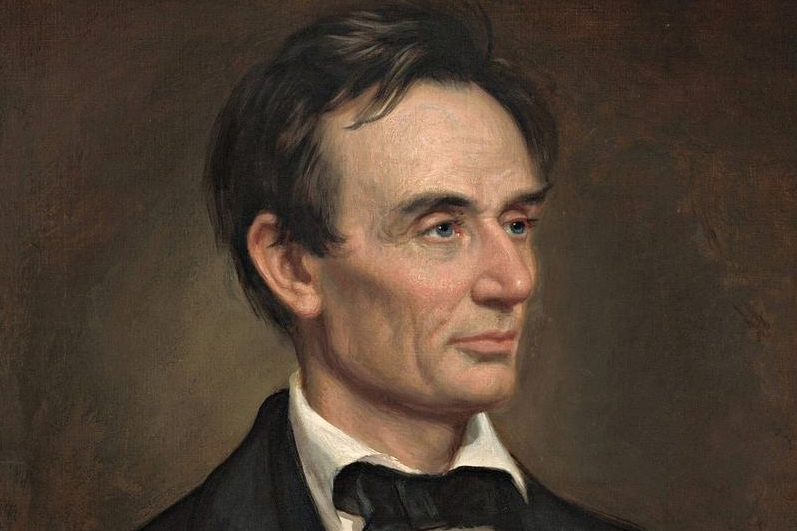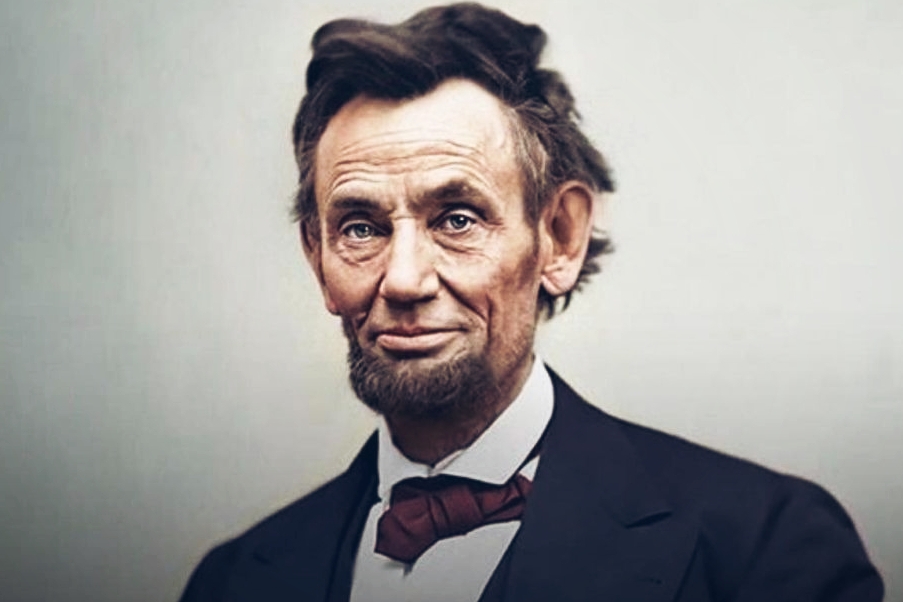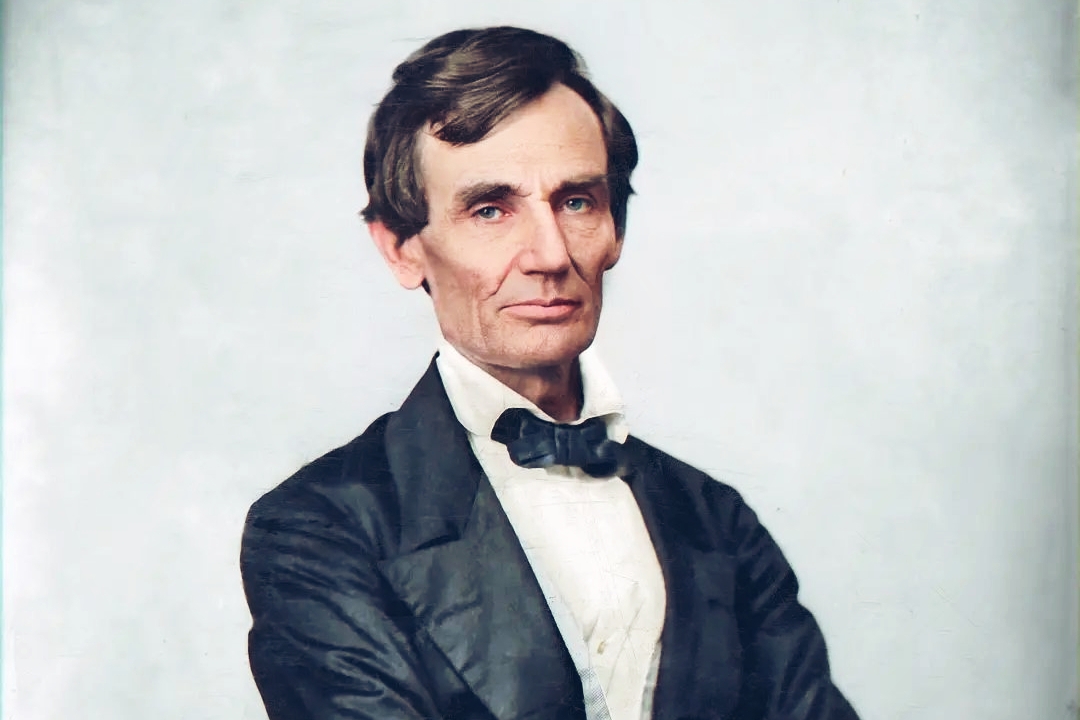Abraham Lincoln, often regarded as one of the most transformative figures in American history, served as the 16th president of the United States during one of its most turbulent periods. His leadership during the Civil War and his dedication to abolishing slavery have left an indelible mark on the nation. This biography delves deep into the life of Abraham Lincoln, exploring his humble beginnings, political career, presidency, and enduring legacy.
Early Life and Humble Beginnings
Abraham Lincoln was born on February 12, 1809, in a log cabin in Hardin County (now LaRue County), Kentucky. His parents, Thomas and Nancy Lincoln, were modest farmers who instilled in him the values of hard work and honesty.
Lincoln’s early life was marked by hardship. At the age of nine, he lost his mother to milk sickness, a condition caused by drinking contaminated milk. Despite limited formal education, amounting to less than a year, Lincoln was a voracious reader and largely self-taught. Books such as the Bible, Pilgrim’s Progress, and Aesop’s Fables shaped his intellectual and moral character.
In 1816, the Lincoln family moved to Indiana, seeking better opportunities. Years later, in 1830, they relocated to Illinois. These frontier experiences taught young Abraham resilience, self-reliance, and a deep connection to ordinary people.
Abraham Lincoln – Early Career and Entry into Politics

Abraham Lincoln’s early career was diverse and humble. Before entering politics, he worked as a rail-splitter, store clerk, surveyor, and postmaster. These experiences kept him grounded and connected to the struggles of everyday Americans.
Lincoln’s political journey began in 1834 when he was elected to the Illinois state legislature as a member of the Whig Party. During this time, he honed his skills in law and public speaking, eventually becoming a self-taught lawyer in 1836. His reputation as an honest and capable attorney earned him the nickname “Honest Abe.”
In 1842, Lincoln married Mary Todd, a well-educated and politically savvy woman from a prominent Kentucky family. Their marriage brought both personal joy and challenges, but Mary’s support was instrumental in Lincoln’s political aspirations.
The Rise to National Prominence
By the 1850s, the United States was deeply divided over the issue of slavery. The passage of the Kansas-Nebraska Act in 1854, which allowed territories to decide for themselves whether to permit slavery, reignited national tensions.
Lincoln, who had long been morally opposed to slavery, found his voice during this period. His debates with Senator Stephen A. Douglas, particularly during their 1858 Senate race, brought him national recognition. While Lincoln lost the Senate election, his eloquence and moral clarity on slavery solidified his reputation as a leader in the newly formed Republican Party.
In one of the most memorable lines from these debates, Lincoln declared, “A house divided against itself cannot stand. I believe this government cannot endure permanently half slave and half free.” This statement underscored his belief that the United States needed to resolve its internal contradictions regarding slavery.
The Presidency and the Civil War

In 1860, Abraham Lincoln was elected the 16th president of the United States. His election marked a turning point in American history. Southern states, fearing the end of slavery under Lincoln’s leadership, began seceding from the Union, leading to the outbreak of the Civil War in April 1861.
Leadership During the Civil War
Lincoln’s presidency was defined by his unwavering commitment to preserving the Union. Despite immense pressure and criticism, he demonstrated remarkable leadership during one of the darkest chapters in American history.
Lincoln faced numerous challenges, including divided public opinion, military setbacks, and personal tragedy. He worked tirelessly to rally the nation, appoint capable military leaders like Ulysses S. Grant, and navigate the political complexities of a fractured country.
The Emancipation Proclamation
One of Lincoln’s most significant achievements was issuing the Emancipation Proclamation on January 1, 1863. This landmark executive order declared the freedom of all enslaved people in Confederate-held territories.
Though it did not immediately free all enslaved individuals, the proclamation transformed the Civil War into a fight not only to preserve the Union but also to end slavery. It also paved the way for the eventual passage of the 13th Amendment, which abolished slavery in the United States.
The Gettysburg Address and Abraham Lincoln’s Vision

In November 1863, Lincoln delivered the Gettysburg Address at the dedication of a cemetery for soldiers who had died in the Battle of Gettysburg. In just 272 words, Lincoln reaffirmed the principles of liberty and equality laid out in the Declaration of Independence.
He famously stated:
“Four score and seven years ago our fathers brought forth on this continent, a new nation, conceived in Liberty, and dedicated to the proposition that all men are created equal.”
The address underscored Lincoln’s vision of a united nation committed to democracy and equality for all.
Personal Challenges and Resilience
Lincoln’s life was marked by personal tragedy and resilience. He and Mary Todd Lincoln had four sons, but only one, Robert Todd Lincoln, survived to adulthood. The deaths of their sons Edward, Willie, and Tad deeply affected Lincoln and his wife.
Throughout these personal losses and the immense burden of leading a nation at war, Lincoln remained steadfast. His ability to find humor and hope amidst adversity is a testament to his strength of character.
Assassination and Legacy
Tragically, Abraham Lincoln’s life was cut short on April 14, 1865, just days after the Union’s victory in the Civil War. While attending a play at Ford’s Theatre in Washington, D.C., Lincoln was assassinated by John Wilkes Booth, a Confederate sympathizer. He died the following day, becoming the first U.S. president to be assassinated.
Lincoln’s death plunged the nation into mourning, but his legacy as a unifier, emancipator, and visionary leader was firmly established.
Abraham Lincoln’s Legacy
Abraham Lincoln remains one of America’s most revered figures, celebrated for his humility, integrity, and dedication to justice. His contributions to the United States extend far beyond his time in office:
- Abolition of Slavery
Lincoln’s leadership was instrumental in ending slavery. The 13th Amendment, passed in 1865, was a direct result of his efforts to secure freedom for all Americans. - Preservation of the Union
By steering the nation through the Civil War, Lincoln ensured the survival of the United States as a unified democracy. - Advancing the Ideal of Equality
Lincoln’s speeches and policies continue to inspire movements for civil rights and equality worldwide. - A Model of Leadership
Lincoln’s ability to lead with empathy, humility, and determination has made him a model for leaders in every field.
Conclusion
Abraham Lincoln’s biography is a story of perseverance, moral courage, and transformative leadership. From his humble beginnings in a log cabin to his role as a nation’s savior, Lincoln exemplified the best qualities of American character.
His unwavering commitment to justice and unity during one of the darkest times in U.S. history has solidified his place as a symbol of hope and progress. As the man who preserved the Union and abolished slavery, Abraham Lincoln’s legacy continues to shape the United States and inspire people around the world.
Abraham Lincoln, the 16th president, remains a beacon of integrity and resilience, proving that greatness often arises from the most unassuming beginnings. His life is a testament to the power of determination, compassion, and an unyielding belief in the promise of a better future.

